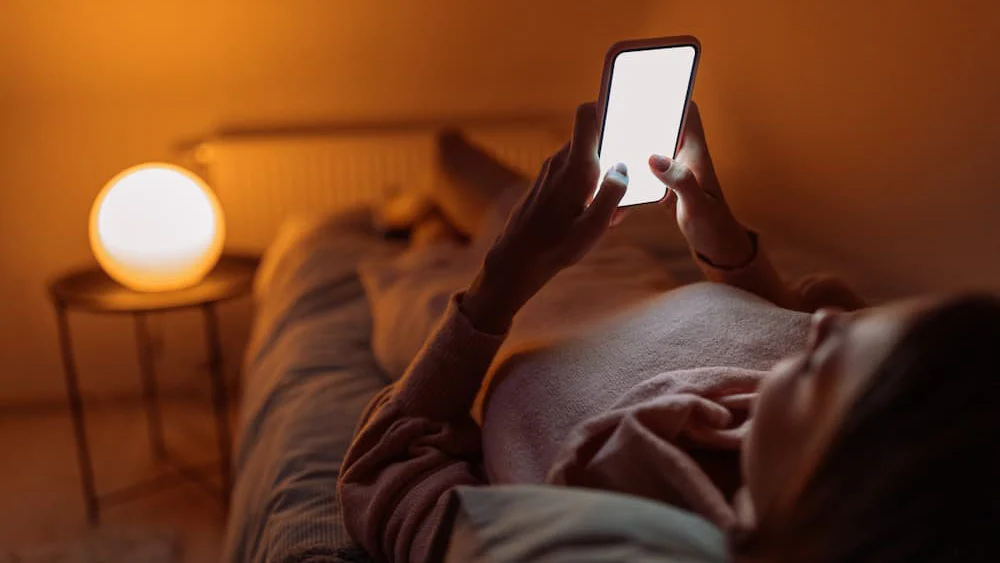Light may seem like a small detail in the rhythm of your day, yet it carries more influence than most people realize. It shapes mood, sleep, emotional regulation, and even the way your brain processes stress. In recent years, research has revealed a troubling pattern: exposure to artificial light at night is tied to higher rates of anxiety, depression, PTSD, bipolar disorder, psychosis, and self-harm. These aren’t casual associations. They point to a deep disruption of the mind’s natural order—an order God built into the human body when He established day and night as anchors for life itself.
Your body moves according to an internal clock—its circadian rhythm. Scripture reflects this design when it speaks of night as a time for rest and restoration. When bright screens, LEDs, and glowing devices push into the hours meant for darkness, the brain receives a false signal that the day is still unfolding. Melatonin, the hormone that God placed in your body to prompt rest, is suppressed. Sleep becomes shallow, delayed, or fragmented. And when sleep fractures, emotional resilience weakens. The mind becomes more reactive, less anchored, and more vulnerable to mental distress.
This disruption is especially pronounced in adolescents. Their developing nervous systems are already vulnerable, and late-night screen time adds a layer of stress they cannot always articulate. Many students stay up finishing homework on laptops, scrolling through social feeds, or gaming long after their brains should be winding down. Their bodies are calling for rest, yet their eyes are absorbing a kind of artificial daylight that keeps their minds alert when they should be settling into peace. It’s no coincidence that rates of anxiety, depression, and exhaustion rise sharply among teens whose nights are saturated with blue light.
But even adults aren’t exempt. When evening routines are shaped more by glowing screens than by quiet rhythms, the mind becomes overstimulated. You may notice irritability growing faster than patience, worries lingering longer than peace, and mental fog settling in where clarity should be. The biblical principle of “keeping watch over your heart” extends to guarding the environment that shapes your thoughts, energy, and rest. Light is part of that environment, and managing it wisely is a form of stewardship over the mind God entrusted to you.
The hopeful truth is that small shifts in your light environment can create profound change. Reducing artificial light at night and welcoming more natural light during the day strengthens the body’s rhythm. It resets the mind’s internal clock to run the way it was designed. Even simple changes—turning off screens an hour before bed, swapping bright bulbs for warm, dim light, using lamp lighting instead of overhead glare, or stepping outside for sunlight each morning—can lift mood, smooth emotional edges, and restore clearer thinking.
Children respond even more quickly to these adjustments. Families who introduce “tech-free evenings,” set boundaries around homework timing, or establish screen-free bedrooms often see dramatic improvements in their child’s attitude, sleep, and emotional balance. These aren’t just lifestyle tweaks; they are protective measures. In the same way Scripture instructs parents to guard what shapes the hearts of their children, controlling light exposure becomes a modern expression of that biblical responsibility.
Schools and communities also play a role. When academic expectations push students into long hours of nighttime screen use, the system itself contributes to emotional strain. Advocating for healthier homework policies, flexible deadlines, or early-evening tech breaks can ripple into stronger mental health across entire classrooms. Light exposure isn’t merely a personal issue—it’s a cultural one.
Light doesn’t just brighten a room; it influences the inner life. When used wisely, it supports the peace and order the mind was created to experience. When misused, it disrupts emotional stability and amplifies stress. Mental health doesn’t drift downward randomly; it responds to patterns. And nighttime light is one of the most overlooked patterns in modern life.
Managing light is not about rejecting technology. It’s about aligning your habits with the natural order God has woven into creation. By dimming screens, embracing darkness when night falls, stepping into sunlight during the day, and teaching children to do the same, you protect the mind’s ability to rest, recover, and remain steady. The consequences of ignoring these patterns are too serious to dismiss, especially when research continues to confirm what Scripture has long implied: the rhythms of creation are meant for your good.
If you’re willing to adjust even a few evening habits, you may notice that you think more clearly, sleep more deeply, react more gently, and carry yourself with more calm. Light shapes mental resilience—and when you steward it wisely, your mind begins to strengthen in ways you may not have imagined.








